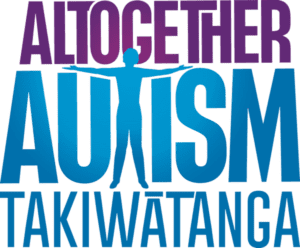
Tertiary education can give you the necessary skills and provide a pathway to your chosen career. Further study after secondary school – or high school – offers a rich and rewarding experience and has the potential to improve your employment opportunities, income levels and standard of living.
There are lots of options when it comes to tertiary education. You might want to study part time or full time, or choose to study on campus or by distance learning. There are lots of different providers too, including universities, polytechnics/institutes of technology and wānanga, as well as private training establishments.
If you’re not sure what you want to do, you can look at the different study and training options at Careers NZ. This website can help you identify your skills and interests, plan your career, and figure out what training or qualifications you will need to meet your career goals. Their courses database lets you search for training providers and courses of study available in your region.
You’ll also find www.govt.nz a good resource to help you navigate government services. The education section provides information and useful links on topics such as tertiary education, apprenticeships and on-the-job training.
If you are moving from secondary school — or high school — to tertiary study, you may qualify for a year of fees-free provider-based tertiary education or two years of industry training.
Check out our pages on transition to adult services to find out about places you can get additional support and advice.
Shakti is studying biology at university. He says moving from high school to tertiary study has had its challenges. Watch Shakti’s Question Time video to find out how he’s coping.
Financial support while studying
If you receive financial support from Work and Income you will need to let them know if you plan to study. You can study full-time if you are on a Supported Living Payment, but in most cases it will affect eligibility for Jobseeker Support.
In certain circumstances, Work and Income may provide support for education or employment related training if you need to learn skills to find employment. This could help with the cost of course fees, books, childcare and transport.
If you do not qualify for support from Work and Income, you might be eligible for a weekly Student Allowance from Studylink, or a Student Loan to cover the cost of fees, course-related costs and living expenses. It’s important to remember that Student Loans must be repaid.
Workbridge is an employment agency that also administers the Training Support fund which provides financial assistance for a person with a disability undergoing training or education as part of their plan to gain open employment. It can be used for things like transport costs, special equipment and NZSL interpreters.
Scholarships
Scholarships are a good way to fund further education without taking on debt.
GivME is a database where you can find lots of scholarship and award opportunities. Users must pay to subscribe to the service, but most secondary schools, tertiary institutes and public libraries will be able to provide you with access for free.
You’ll find the Careers NZ section on scholarships really useful, with links to scholarship information at universities and polytechnics throughout New Zealand, as well as tips for applying.
Look for information about scholarships and grants on the New Zealand Government website.
Disability support services at your tertiary education provider should be able to provide you with information about scholarships for people with disabilities. And many disability support organisations and charitable trusts may also have grants available. Check out our page on other funding options for more ideas.
Support for students with disability
Tertiary education organisations are expected to ensure equity of access and opportunity for people with disabilities, and to provide the support students require for full participation.
You’ll find most tertiary providers will offer support for students with disabilities through Disability Support Services or a Disability Liaison Officer.
Disability Support Services may be able to help you with things like scholarship information, campus accessibility, special examination conditions, note taking, equipment for loan, accessible course materials and sign language interpreters.
Find Disability Support Services at your tertiary education provider
Auckland University of Technology
Eastern Institute of Technology
Manukau Institute of Technology
Southern Institute of Technology
Unitec Institute of Technology
Toi Ohomai Institute of Technology
Waikato Institute of Technology
Wellington Institute of Technology
Learn more about some of the supports available for university students on the autism spectrum in this article from the Altogether Autism Journal.





